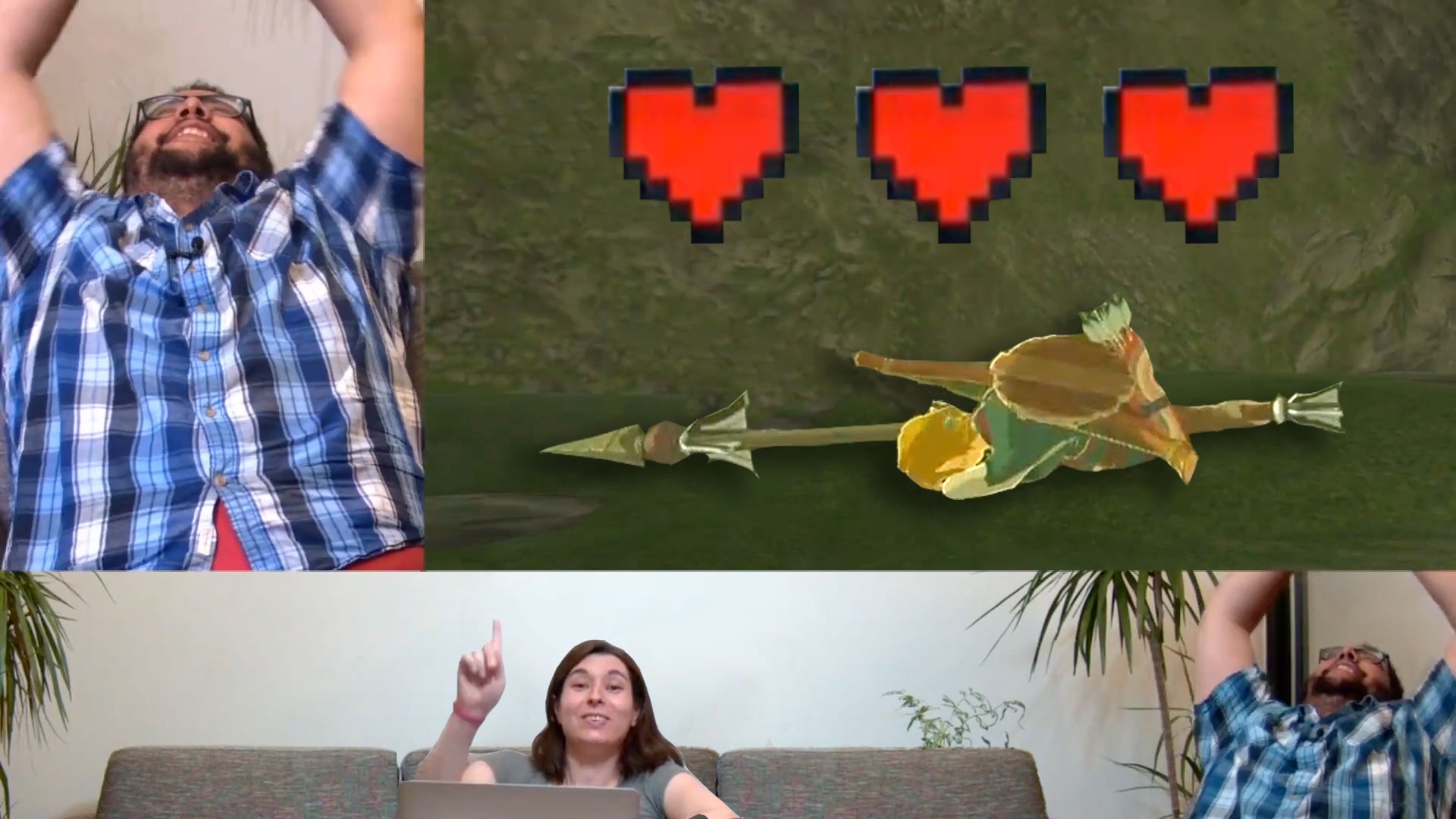People have been predicting Nintendo's doom for longer than I can remember, but when the company's back is against the wall, they find a way to reinvent themselves. It's impossible to count them out. But after Wii U, a machine with a Dreamcast-like slate of excellent games ignored by the masses that made the Wii a phenomenon, it was easy to see merit in fears about Nintendo's future.The company would continue to make games, of course, but in what form? Would they finally fulfill the desire of countless armchair analysts and follow Sega, whose road to becoming a third-party has been, at best, rocky? Would they follow in the footsteps of so many other Japanese creators and embrace mobile as The One True Future? Nintendo couldn't afford another Wii U. It needed a hit.
Advertisement
Switch was exactly what had been rumored and hoped for: a portable console. It's not the most powerful piece of hardware around, but that's never been a problem with Nintendo. Switch works because, well, it just works. Plug the device into a dock it's a console. Take it out of the dock and into your bag—it's a handheld. The transition is seamless, effortlessly communicates what's different about it, and it's got me frustrated there aren't more games for it. It's my preferred console.
Strangely enough, Wii U's failures ended up helping Switch. The Legend of Zelda: Breath of the Wild took so long to develop that, like Twilight Princess before it, the game was able to straddle generations. Mario Kart 8, a superb entry in the company's long-running arcade racing series, may as well not have existed for most people. Its release on Switch was, for many, a brand-new game.For the last few years, Nintendo has eschewed traditional press conferences with action-packed Nintendo Direct streams. They've said this year's event won't run more than 30 minutes, and with Nintendo of Canada setting up kiosks for Super Mario Odyssey demos, my money's on Mario's latest outing taking center stage. Beyond the glory of New Donk City, we don't know much about Super Mario Odyssey, except that it'll have Mario. And jumping. Given the games that team has put out in the last decade— Super Mario Galaxy, Super Mario Galaxy 2, Super Mario 3D Land, Super Mario 3D World—we're in for a treat. Those folks have been on fire.
Advertisement
Breath of the Wild was not a safe bet for Nintendo. With some key exceptions— Super Mario Maker, Mario Paint, etc.—Nintendo keeps players on a tight leash. Breath of the Wild, however, trusted you. Nintendo built the world, yes, but players decided what happened next. It was a risk that could have backfired, and the game's long development suggests that Nintendo was patient about making it work.It was a risk they needed to take, though. Had Nintendo developed yet another traditional Zelda, following the proven but increasingly tired formula from Ocarina of Time to Skyward Sword, the response to Switch might have been vastly different. Switch could have experienced a tepid launch without such a landmark game. Instead, it feels like they landed another Super Mario 64.Breath of the Wild, like the hardware it helped debut, was a reinvention. Familiar in the right ways, but downright risky in others.If Nintendo hopes to see sustained success with Switch beyond Breath of the Wild, a transcendent game likely to influence many others over the next decade, they should apply that sense of bold reinvention to everything in their lineup. That means rethinking the old ways of making sequels, and trusting their ability to craft new experiences. Wii U may not have been a "success," but few games inspired the same kind of intense fandom as Splatoon, in which Nintendo decided it was going to make a third-person shooter with an emphasis on multiplayer. That sentence—a third-person shooter with an emphasis on multiplayer—sounds very un-Nintendo, but Splatoon is the very essence of a Nintendo game: polished, inventive, delightful. Nintendo needs more games like Splatoon.
Advertisement
Watch more, from Waypoint:

ARMS suggests Nintendo has taken cues from the reaction to Splatoon. Whether or not Nintendo anticipated the world to get downright horny for one of its fighters, the character-driven focus of ARMS echoes Splatoon's bombastic approach to personality. There was a similar reaction to Breath of the Wild's shark prince, a charming aquatic creature that a shocking amount of the Internet wanted to fuck. Maybe the key to Nintendo's future success isn't redefining how they make games, but doubling down on horny? It's a thought.Heck, the fact that Nintendo's openly cited the lack of a new Advance Wars is due to their inability to capitalize on relationships in the way Fire Emblem does point to a Nintendo quietly beginning to understand different ways of encouraging fandom. It's not just about selling people another copy of Super Mario World. (Though I suspect they'll be happy to do exactly that eventually on Switch.)Breath of the Wild doesn't mean that Nintendo should drop every one of their franchises into an open world; Zelda's latest follows the same path as Metroid Prime, in which the company distilled a game's essence in a context that felt fresh, bold, and new.I want Nintendo to approach Switch as though it's the last console they'll ever make, as if failure would means the end. It's time to throw everything at the wall, leave nothing on the table. No risk, no reward. If they do, we all reap the rewards.Follow Patrick on Twitter. If you have a tip or a story idea, drop him an email here.
